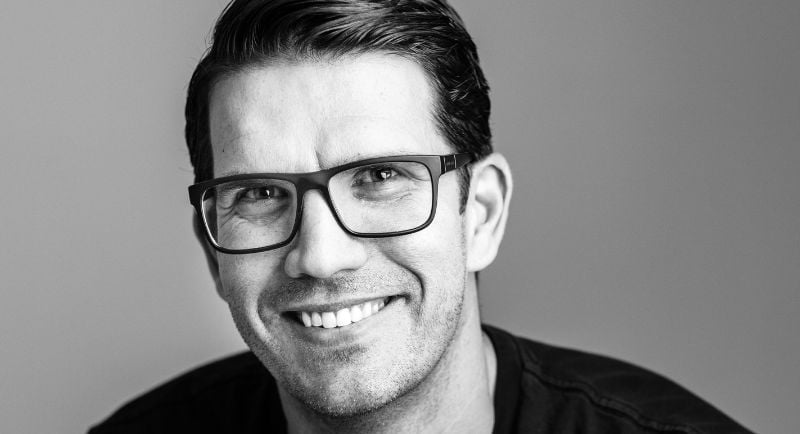By Adam Furness, APAC MD impact.com
The last decade has seen a significant shift in trust in governments, institutions, media and brands. A key driver of this growing distrust has been the fragmentation of media and the proliferation of online platforms that make it easy for almost anyone to share an opinion, sell a product or create news (real or fake).
Simply put, people don’t know where to turn and who to believe when it comes to making key decisions in their lives. Consequently, with so much conflicting information out there they increasingly prefer to “do their own research” and tap into networks and relationships they already have. This is having a real impact on how many institutions and organisations communicate to their desired audience – particularly the media and marketing industry.
With trust in short supply, we’ve seen marketers putting a greater emphasis on partnering with companies and individuals with whom they share common or complementary values, in order to reach new customers.
Here’s four reasons why:
Traditional advertising is on the wane
Traditional selling and advertising just isn’t getting the job done on its own anymore, in fact 84 percent of millennials don’t trust traditional advertising. Millennials are the largest generation in terms of spending patterns right now, and they don’t like advertising. Digital advertising hasn’t helped its case either with a combination of slow to load, disruptive ads and consumer concerns about how their data is being used contributing to the general irritation and mistrust levels. Indeed, almost 44 percent of Australian internet users are blocking ads on their devices.
This means consumers no-longer rely solely on brand messages or traditional advertising to make purchasing decisions. Instead, they seek trust, authenticity, and the opinions of those they connect with on a deeper level. People are now finding, discovering and purchasing products and services from the “people” they trust. No trust, no buy. This can include a company that they’re doing business with, an influencer that they’re following on Instagram, a product review column or similar.
Partnerships help drive trust
Partnerships have emerged as a powerful method of acquiring this trust. Collaborations with influencers, commerce content publishers, loyalty programs, and content creators have become instrumental in building connections with consumers.
The last few years have seen the rise of a new breed of trusted individuals known as creators. So much so, that the majority of social media users trust user-generated content more than brand-owned creative. These creators resonate with specific audiences and wield the power to influence their purchasing decisions. For younger consumers, in particular, these creators are the trusted voices they turn to. This is why we are seeing big retailers launch initiatives like Walmart Creator, a dedicated portal which provides creators with the tools and resources they need to monetise shoppable products.
However, whether it’s a content creator or a brand to brand relationship, the purpose of partnerships remains the same – to work with third-party businesses and individuals who already have a trusted relationship with a customer or audience, and leverage existing brand equity to reach a new built-in set of consumers. Think of it as a warm introduction from a trusted friend, but at scale.
People are seeking authenticity
In a world of declining trust levels, fake news and deep fakes (last month, Industry Minister Ed Husic who is overseeing the federal government AI regulation efforts met with Sam Altman, CEO of OpenAI to discuss the idea of mandatory labeling AI-generated content to protect the public from being fooled) it isn’t surprising that people are seeking out authentic connections to brands. Instead of believing glossily produced marketing prose, customers increasingly lean into a brand or product on the say-so of someone they know, or feel like they know and trust. The right type of partnerships can tap into this type of established trust and credibility, forging a more authentic connection with consumers.
For brands, this means revoking some control through marketing messages; certainly when it comes to content creators. The success of these partnerships lies in allowing creators the freedom to put their unique spin on content. Instead of dictating every detail of the campaign, brands should focus on letting creators emphasise what speaks to them – and their audience – the most. They must allow them the freedom to engage with their audiences authentically and Booktopia does this well. If you take a look at their instagram feed their partner content feels very fresh and uncontrived.
Technology can now manage partnerships at scale
It used to be impossible to manage a diverse partnership program at scale unless you had a large dedicated team. Fortunately, technology has changed that and partnership automation software like impact.com’s means it isn’t just big enterprises who can effectively manage an extensive program. Indeed, Australian luggage start-up July used impact.com’s partnership platform to launch into the US market at a time when they only had a team of 15 people!
Trust is the new currency, and partnerships can provide a bridge to the hearts and minds of consumers. By embracing authenticity, technology and a creative approach to partnerships, brands can navigate this shift and thrive in a world where trust is the driving force.
–
Adam Furness is APAC managing director of impact.com and has been in the role since 2018. He is a strategic thinker, with a growth mindset, a bias for action and a drive to deliver outstanding business outcomes. Furness has extensive experience with financial and commercial modeling, deal negotiations and P&L management across multiple APAC markets.
Furness is co-chairperson of UnLtd, the industry’s social purpose organisation, alongside the recently appointed Rebecca Darley, CMO at Domain.
See also: UnLtd welcomes its new co-chairs Rebecca Darley and Adam Furness
–
Top image: Adam Furness
